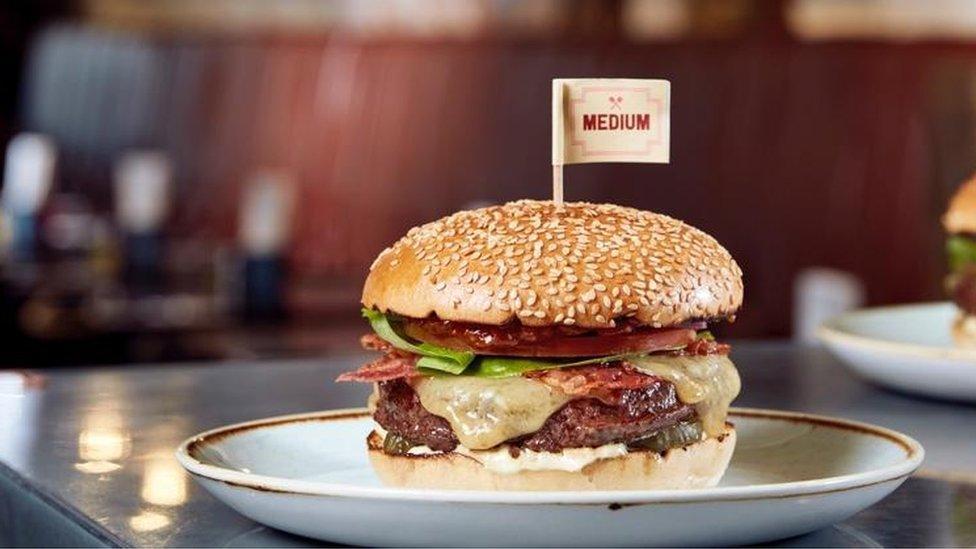What went wrong at Jamie's Italian?
- Published
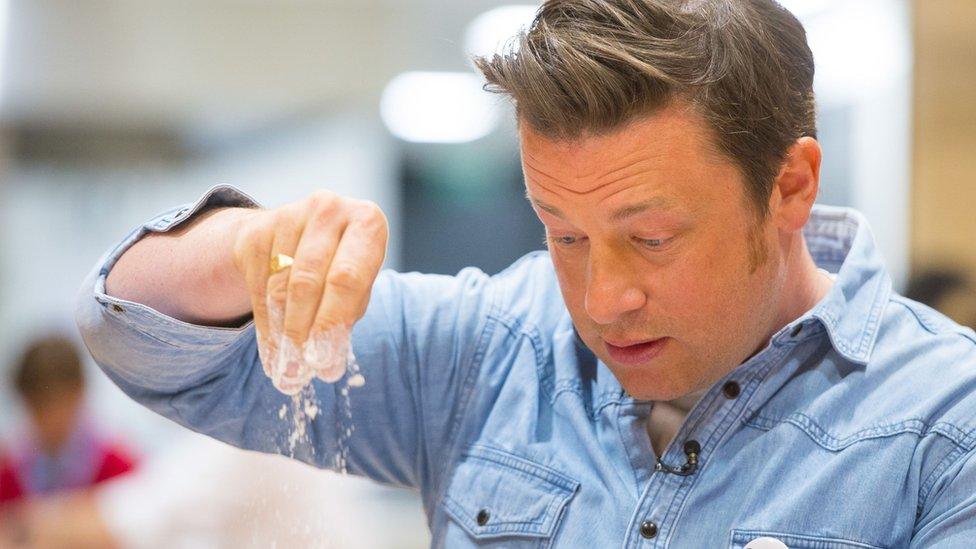
"If Jamie can replicate this early Oxford form," wrote the Guardian's restaurant critic Matthew Norman in 2008, external, "he will soon be driving a prize herd of recession-proof cash cows across the land."
Norman was reviewing the first branch of what would become a country-wide franchise, designed, in Jamie Oliver's own words, "with the intention of positively disrupting mid-market dining in the high street in the UK, with great value and much higher quality ingredients, best in class animal welfare standards and an amazing team".
Fast forward a decade, and this was the Sunday Times' Marina O'Loughlin's, external verdict on the "tagliatelle with truffles" at the Jamie's in Westfield Stratford.
"Appalling, a honking, salty swamp of a sauce, brown and dusty with nutmeg. Tiny chunks, not shavings, of tasteless black truffle lurk around, like mouse poos in soup."
A mere eight months after that damning review, the celebrity chef's eponymous chain, along with brands Barbecoa and Fifteen, has gone into administration, putting 1,000 jobs in peril.
In an email to staff on Tuesday morning, Mr Oliver blamed "the well-publicised struggles of the casual dining sector and decline of the UK high street, along with soaring business rates," for the company's collapse.
Administrators KPMG echoed this rationale, citing a tough trading environment.
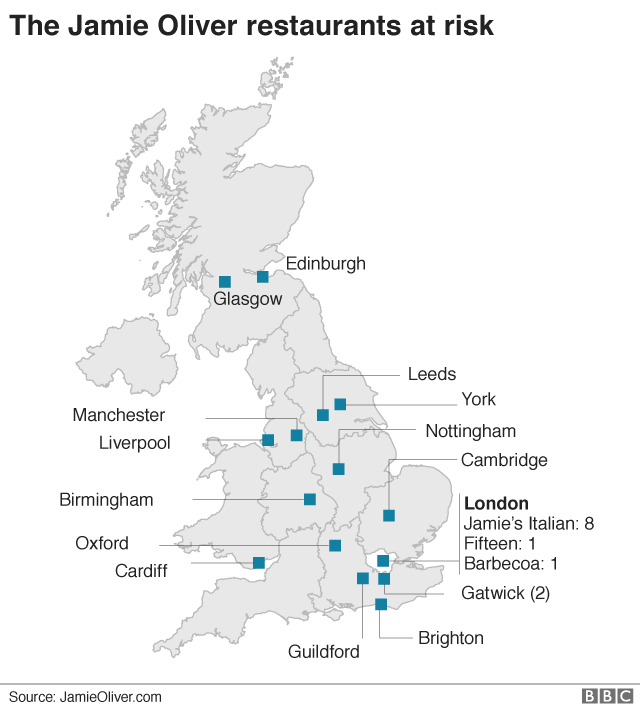
Shock dismissals
True, the woes of so-called casual dining sector are well documented.
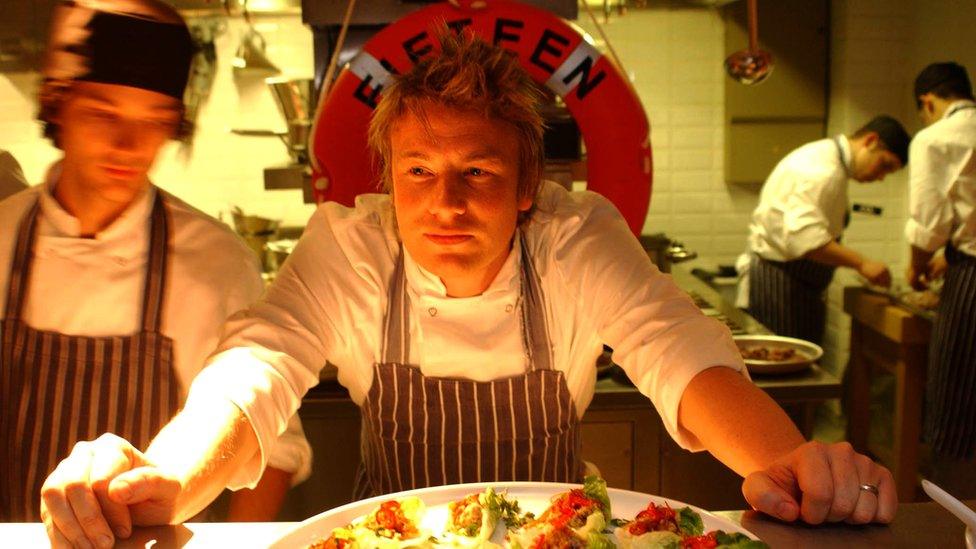
Former employees at Fifteen say Oliver deserves more credit
Once seen as competitors to Jamie's, Italian chain Strada is down to just three branches, while Carluccio's has been forced to close approximately a third of its restaurants, after losing tens of millions of pounds.
Burger brand Byron, French cuisine chain Cafe Rouge, and pizza outlet Prezzo aren't faring much better.
But staff at Jamie's were still hopeful that a turnaround was on the horizon.
"We knew it wasn't doing as well as we'd want it to be," says Lucy, who worked at the Glasgow branch for more than three years.
Staff, she says, were led to believe that a refit was around the corner, and that taps offering Brewdog beer would soon be installed.
Instead, they got a simple email.
"My partner was meant to be on shift this morning," says Lucy, who asked for her real name not to be used.
"He was told at the last minute not to come in as the locks were being changed.
"We were then invited to join a conference call and told we had all been made redundant, effective immediately."
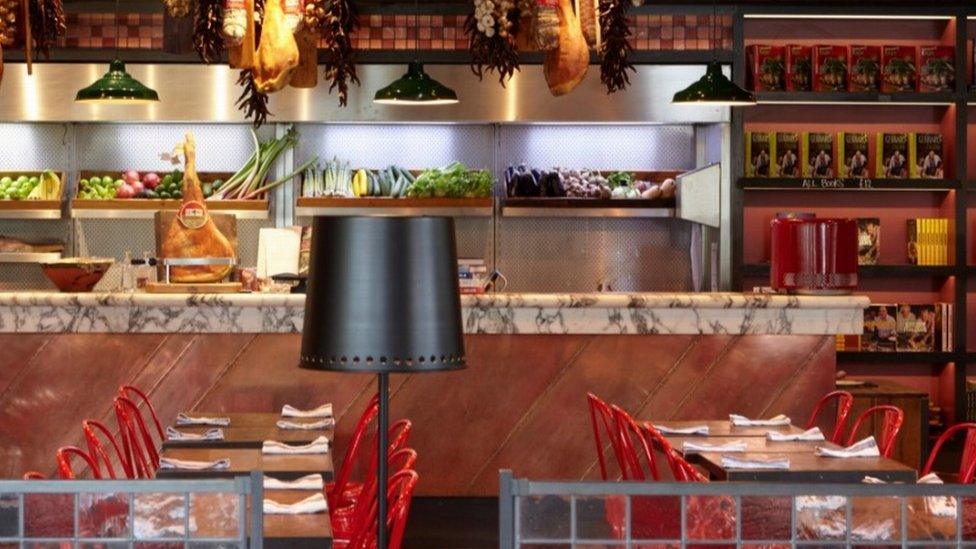
Staff at the Glasgow branch of Jamie's were overburdened, say former employees
Lucy and her partner, who worked at Jamie's for five years, say they feel there was a lack of transparency at the firm.
"I wish they hadn't said to us that it was fine, when it obviously wasn't," she says.
Multiple problems
But the 27-year-old is in no doubt as to what led to the chain's demise.
"Firstly, the restaurants are far too big," she explains. Due to pared-down staffing numbers, on busy evenings she would be waiting on as many as 11 tables at once, while managers and chefs also felt overburdened.
Then there was the tie-ins with voucher schemes, such as Groupon, which attracted fickle bargain hunters, and "didn't inspire loyalty or regular customers".
Tourists and those who happened to be passing by became the key clientele, says Lucy, with "very few people coming in because of excitement of being at a Jamie's Italian".
Despite the team's hard work, those who took the time to check local ratings on their smartphones generally stayed away too.
"Unfortunately, because of the fact that it is quite expensive, we would not be on the top on TripAdvisor," says Lucy.
"The market for chain restaurants is dying - there are loads of places you can go in Glasgow that are cheaper."
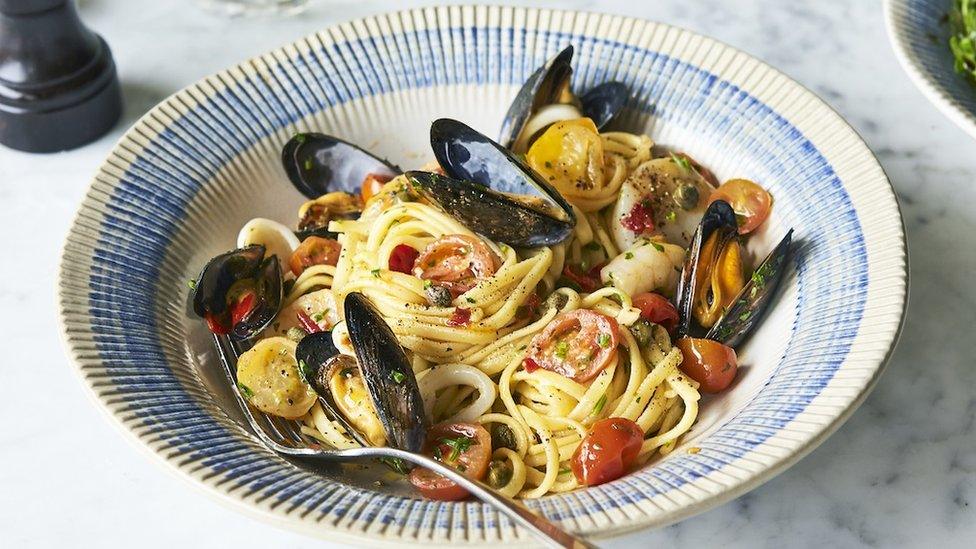
Food critics were less than complimentary about some of Jamie's dishes
Many analysts agree, arguing that the private equity firms which developed an appetite for group restaurants over the last few years drove rapid growth in pursuit of profits, to the detriment of the dining experience.
Data firm CGA estimates that the number of group restaurants in the UK increased by almost 30% to 5,785 in the five years to March 2019.
Bad reviews and concerns over the quality of ingredients have also increased at many restaurant chains, including Jamie's.
The firm was caught up in a meat recall by supplier Russell Hume, which the Food Standards Agency found was "unable to demonstrate compliance with food hygiene rules".
But Jonathan Woodhouse, a former manager at Fifteen in London, thinks the man at the helm is not at fault.
While he concedes that the group "grew too big and tried to do too much," Mr Oliver, he says, "gets a bad rep for everything".
The Italian branches, he adds, were "effectively franchises" and run very differently to the TV chef's early restaurants.
Mr Woodhouse says working at Fifteen was "one of the best jobs" he'd ever had, and that Oliver was trying to do "something special" there, with his groundbreaking apprenticeship programme.
"It's heartbreaking to hear it may go under," he adds.
- Published22 May 2019
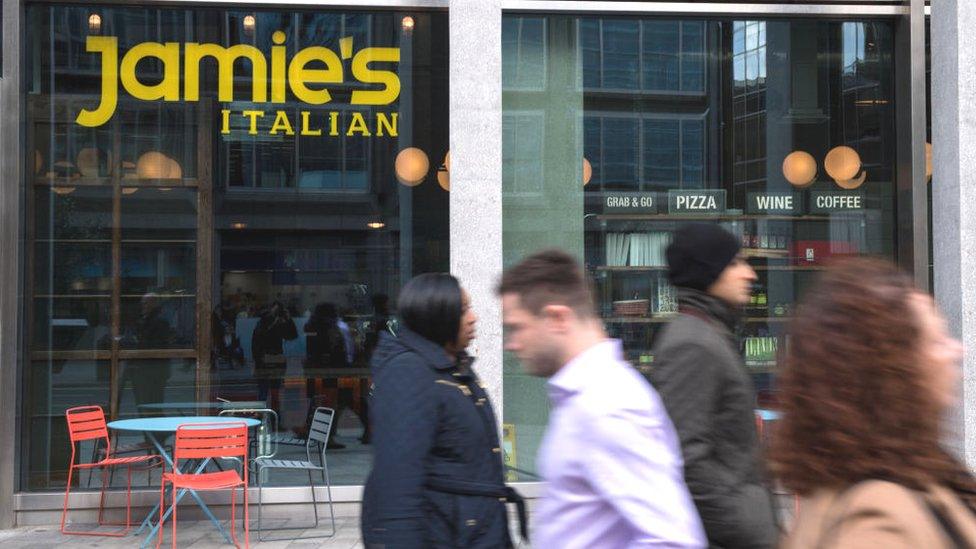
- Published17 December 2018
